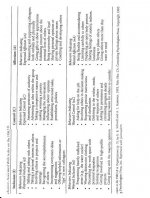ygolo
My termites win
- Joined
- Aug 6, 2007
- Messages
- 5,996
I am pretty sure loneliness has nothing to do with being alone, but rather feeling alone.
What characterizes this mindset, and how does one change it?
I should add that I have been feeling profoundly lonely for the past month, and have many times in the past felt just as lonely.
I should also add that I've gone and done a lot of things to try to get rid of this loneliness: talking with friends (IRL), trying to deepen relationship with current friends, volunteering, going dancing, playing games, talking with family, chatting with strangers on the internet, I've even gone to clubs and been physically intimate with a woman.
None of this has alleviated the profound sense of loneliness. The only bright spot was when one of my friends called out of the blue to try to cheer me up. She laid on the complements pretty thick, but I know her to be a very sincere person, so I know at least part of her believed what she said.
What is going on?
What characterizes this mindset, and how does one change it?
I should add that I have been feeling profoundly lonely for the past month, and have many times in the past felt just as lonely.
I should also add that I've gone and done a lot of things to try to get rid of this loneliness: talking with friends (IRL), trying to deepen relationship with current friends, volunteering, going dancing, playing games, talking with family, chatting with strangers on the internet, I've even gone to clubs and been physically intimate with a woman.
None of this has alleviated the profound sense of loneliness. The only bright spot was when one of my friends called out of the blue to try to cheer me up. She laid on the complements pretty thick, but I know her to be a very sincere person, so I know at least part of her believed what she said.
What is going on?

